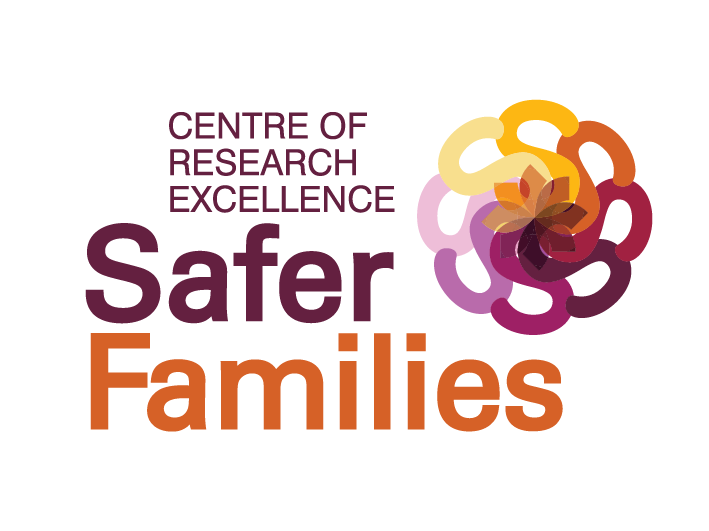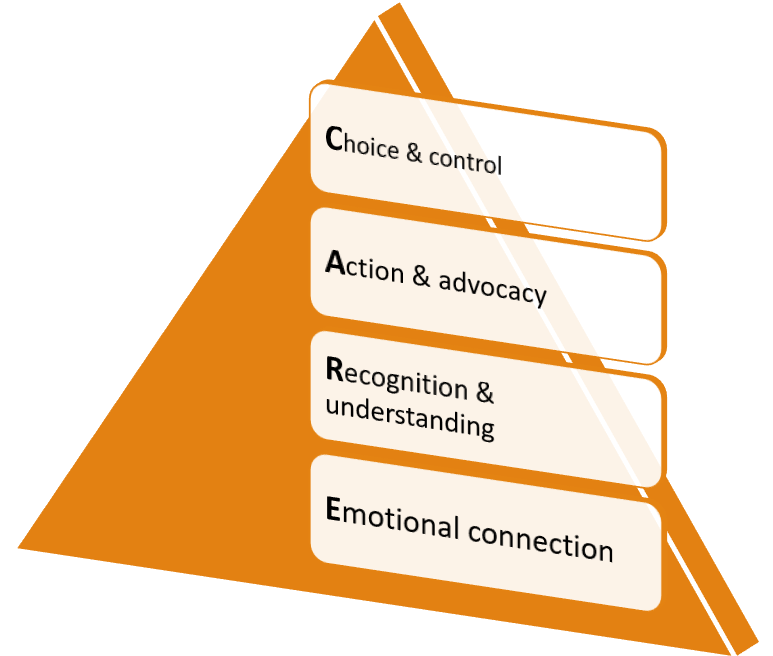CARE Model
CARE Model
Safer Families Centre has developed the CARE model which is how women survivors want to be responded to after disclosure. It is a guideline for health care providers to ensure the principles of woman-centred care underpin their practice. They want Choice and Control in our interactions with them. They want us to help with practical action and advocacy. They really want us to recognise and understand what they have gone through, and they value the emotional connection with us as we support them on their journey to recovery through the therapeutic relationship.
While the LIVES tool represents the best-practice model for what health care providers can do when a woman discloses IPA, CARE represents how they can ensure that women’s individual needs are at the centre of the responses they provide.
Tarzia L, Bohren MA, Cameron J, et al Women’s experiences and expectations after disclosure of intimate partner abuse to a healthcare provider: A qualitative meta-synthesis BMJ Open 2020;10:e041339. doi: 10.1136/bmjopen-2020-041339
What are women’s experiences and expectations following disclosure of intimate partner abuse to a healthcare provider?
For many women, a primary need is for the practitioner to provide emotional connection, continuity of carer and practical support that facilitate choice and empowerment. Although safety planning and referral to specialist services remain an important component of the healthcare response, practitioners should be mindful that this is not what every woman needs. For some, the desire for kindness and care will be greater.
The Safer Families Centre has developed a companion model (CARE) that could be used by practitioners alongside the existing LIVES model to facilitate a woman-centred approach. This may help to increase practitioner confidence in responding to this complex social and health issue.
A recent qualitative metasynthesis by the Safer Families Centre has updated and expanded the knowledge base around women’s experiences and expectations of health care providers following a woman’s disclosure of IPA. See Women’s experiences and expectations after disclosure of intimate partner abuse to a healthcare provider: A qualitative meta-synthesis
Four analytical themes were developed that describe women’s experiences and expectations after disclosure of IPA to a health care provider:
Connection through kindness and care
See the evil, hear the evil, speak the evil
Do more than just listen
Plant the right seed
Each of these themes is described in detail in the paper via the link above.


